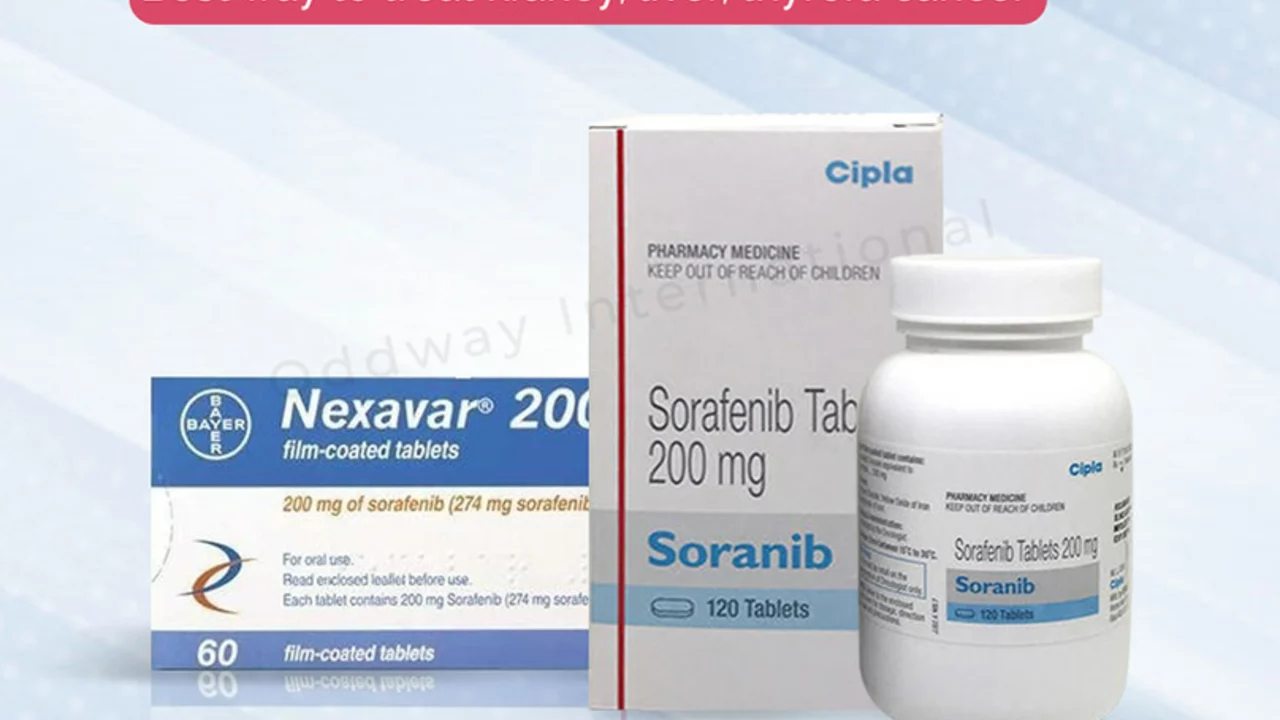Exploring Sorafenib: What It Is and How It Helps
Sorafenib is an oral cancer drug used to slow growth in certain tumors. Doctors commonly prescribe it for advanced liver cancer (hepatocellular carcinoma), some kidney cancers, and radioactive iodine–refractory differentiated thyroid cancer. It works by blocking several proteins (kinases) that tumors use to grow and build blood supply.
What Sorafenib Does and Who Gets It
If your oncologist suggests sorafenib, the aim is usually to control disease, ease symptoms, and extend time without cancer progression. It’s not a quick cure, but it can keep fast-growing tumors in check. Patients who’ve had surgery or other treatments but still have active disease may be candidates. Your team will decide based on cancer type, tests, liver and kidney function, and overall health.
Practical Tips, Side Effects & Safety
Typical adult dosing starts at 400 mg twice daily, but your doctor will confirm the exact plan and adjust it if needed. Take the drug exactly as prescribed and don’t stop suddenly without talking to your care team.
Common side effects are predictable and manageable: hand–foot skin reaction (red, tender patches on palms/soles), diarrhea, fatigue, high blood pressure, rash, and hair thinning. Less commonly, sorafenib can affect the liver, cause bleeding, or delay wound healing. Watch for dark urine, yellowing of eyes or skin, unusual bruising, or severe diarrhea and tell your doctor right away.
Monitoring is important. Expect baseline and regular checks for liver tests, blood pressure, and sometimes blood counts and thyroid tests (especially if treating thyroid cancer). Your doctor may pause or lower the dose if side effects become bothersome.
Drug interactions matter. Sorafenib is processed in the liver, so strong CYP3A4 inducers (like rifampin or St. John’s wort) can lower its levels, while strong inhibitors (certain antifungals or some antivirals) can raise them. Anticoagulants such as warfarin may need closer INR monitoring. Always tell your pharmacist about all medicines and supplements you take.
Pregnancy and breastfeeding: sorafenib can harm a fetus. Use effective contraception during treatment and for a period after stopping, per your doctor’s advice. Don’t breastfeed while on sorafenib.
Simple daily tips: check your blood pressure at home, moisturize hands and feet to reduce cracking, carry anti-diarrheal meds if your doctor approves, and report fevers or wounds that won’t heal. Keep the tablets in their original container at room temperature and out of reach of children.
Questions to ask your oncologist: Why is sorafenib the right choice for my cancer? What side effects should I expect first? How will we monitor liver function and blood pressure? Who do I call after hours for urgent problems?
Sorafenib can be a useful tool in cancer care when used with careful monitoring. Talk openly with your team about side effects and practical steps to stay safe and comfortable during treatment.
- Colin Hurd
- Jun, 26 2023
- 20 Comments
The breakthrough cancer treatment: Exploring the benefits of sorafenib
I recently came across an incredible breakthrough in cancer treatment involving a drug called sorafenib. This targeted therapy has shown promising results in treating various types of cancers, including liver and kidney cancer. Sorafenib works by blocking the growth of cancer cells and cutting off their blood supply, effectively slowing down or stopping tumor growth. The benefits of this treatment include fewer side effects compared to traditional chemotherapy and the potential for improved survival rates. I can't wait to see how further research and development of sorafenib will continue to revolutionize cancer treatment for patients worldwide.

